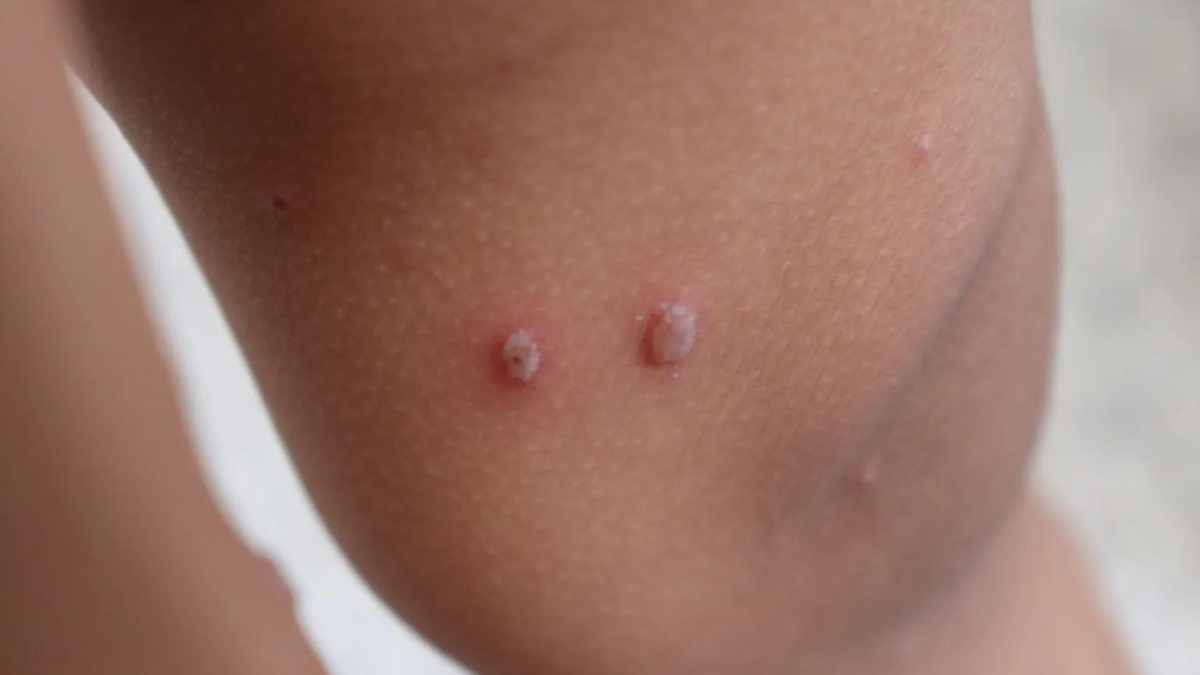The U.S. is reporting more cases than in past years. Experts say travel and low vaccination rates are reasons why.
By
The United States is experiencing its greatest measles outbreak in years.
As of late February, the Center for Disease Control and Prevention (CDC) reported 41 cases across 16 states: Arizona, California, Florida, Georgia, Indiana, Louisiana, Maryland, Michigan, Minnesota, Missouri, New Jersey, New York City, Ohio, Pennsylvania, Virginia, and Washington.
That’s three times more cases in the first two months of 2024 than in 2020 altogether — 13 for the entire year. Last year, 58 cases were reported.
Measles is a highly contagious viral illness that causes a rash all over the body, high fever, runny nose and cough. Caused by the rubeola virus living in infected people’s throats and nose phlegm, it spreads through breathing, coughing and sneezing. It’s more infectious than COVID-19.
Dr. Greg Hall, a Cleveland, Ohio-based physician who focuses on African-American health, says measles can be deadly if it turns into pneumonia. Black folks, whose immune systems are often compromised by chronic illness, should be aware of its potential severity.
“People with asthma, people with diabetes, all those people are at increased risk,” Hall told Word In Black in a video interview.
Vaccine Hesitancy in the Black Community
In 2000, measles was deemed eliminated in the United States, but the nation saw a jump to nearly 1,300 cases in 2019, right before the pandemic. Cases are on the rise again due to a lack of vaccination.
A 2023 report by Pew Research found that the majority of parents across racial and ethnic groups say their child has received the measles, mumps, rubella (MMR) vaccine. However, white parents (83%) were more likely to say this than Black (74%) and Hispanic parents (64%).

Credit: Dr. Gregory Hall
The African Roots of Vaccines
Hall says if Black people knew the origins of vaccines, they may be more inclined to get them. He’s talking about Onesimus, an enslaved African man who introduced the concept to his captor, Cotton Mather, in 1716.
Enslaved in Boston, Onesimus told Mather he was made immune from smallpox by rubbing a small amount of pus from an infected person onto an open wound — an ancient medicinal process called inoculation.
Mather shared Onesimus’ story around Boston, eventually getting a doctor’s attention amid a smallpox outbreak in 1921.
“That was the beginning of this whole vaccination, inoculation process in the United States. So, African Americans should be particularly proud that we introduced that to North America,” Hall says.
COVID-19, Travel, and Measles
According to the CDC, vaccine hesitancy isn’t the only reason why measles is raving. Over 61 million doses of measles-containing vaccines were postponed or missed from 2020 to 2022 due to COVID-19-related delays.
On top of that, travel remains a high risk for transmission. There are currently outbreaks happening around the world. The virus can enter the U.S. through infected Americans traveling home from other countries or infected foreigners traveling through the country.
Between July and December 2023, Yemen reported 18,464 cases to the World Health Organization. India reported 12,301. Ethiopia, 10,060. And Iraq, 7,601.
Because measles doesn’t mutate like COVID-19, Hall says vaccinated people are safe to travel as long as they are vaccinated. As far as predictions for the future of measles in the U.S., he says, “It all depends on how many people are not vaccinated because it’s highly contagious.”
This story was originally published in Word In Black.
Get Word In Black directly in your inbox. Subscribe today.



